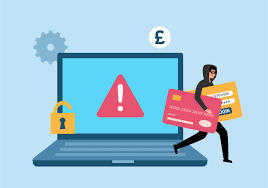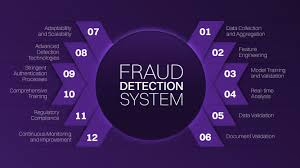The banking industry has faced various forms of assault for centuries. Initially, it involved the physical theft of cash. Subsequently, it transitioned to computer-related fraud. In the present day, the threats have evolved to encompass not just cyber fraud but also unauthorised access to servers aimed at acquiring customers’ personally identifiable information (PII). This evolution underscores the critical importance of cybersecurity in the banking sector. As both individuals and businesses increasingly engage in online transactions, the likelihood of data breaches continues to rise. Consequently, there is an amplified focus on understanding the significance of cybersecurity within banking operations.

The necessity of cybersecurity
One clear justification for the emphasis on cybersecurity in banking transactions is the safeguarding of customer assets. With a growing number of consumers opting for cashless payments, transactions are frequently conducted through online checkout systems and physical card readers. In either scenario, PII is at risk of being intercepted and exploited for nefarious purposes.
The repercussions extend beyond individual customers; banks also suffer significant harm as they strive to recover compromised data. When information is held hostage by cybercriminals, financial institutions may find themselves compelled to pay substantial sums—often reaching hundreds of thousands of dollars—to regain access. This not only damages their reputation but also erodes customer trust and affects relationships with other financial entities.
Moreover, the failure to enforce robust cybersecurity measures can lead to additional complications for customers, who may need to cancel all their cards and establish new accounts—potentially with a different bank. Although the FDIC insures their funds, this protection does not prevent criminals from attempting to misuse their PII.
Three current risks linked to online banking
The scenarios mentioned above represent just a fraction of the potential cybersecurity challenges facing the banking sector. Other significant concerns include:
Protect your systems from cyber threats with secure software solutions
In light of the current security landscape on the internet, it’s essential to either enhance or completely overhaul your  existing protective software. Here are several key considerations in the realm of banking software development.
existing protective software. Here are several key considerations in the realm of banking software development.
Security assessment—Conducting a comprehensive security assessment is crucial before introducing any new cybersecurity tools. This evaluation will identify your current system’s strengths and vulnerabilities, offering suggestions that can lead to cost savings while ensuring appropriate investments.
Firewalls—Effective cybersecurity for banking involves software and necessitates the proper hardware to fend off attacks. By implementing an upgraded firewall, financial institutions can prevent harmful activities from infiltrating other segments of their network.
Anti-virus and anti-malware software—While enhancing firewall protection is vital, it will not be sufficient without keeping anti-virus and anti-malware applications current. Outdated software may lack the latest definitions and virus signatures, leaving your system vulnerable to severe attacks.
Multi-factor authentication – Also referred to as MFA, this security measure is essential for safeguarding customers who engage in mobile or online banking. Many individuals neglect to change their passwords regularly or only make minor adjustments. MFA adds an extra layer of security, requiring additional verification, such as a six-digit code sent to the user’s mobile device, which helps block unauthorised access.
Biometric authentication is a more advanced form of MFA that provides heightened security compared to standard text codes. It uses unique biological traits like retina scans, fingerprints, or facial recognition to verify a user’s identity. Although hackers have breached such systems before, compromising biometric security remains significantly more challenging.
Automatic logout feature – Numerous websites and applications offer users the option to remain logged in indefinitely. However, this convenience can pose a security risk, so it’s essential to implement automatic logout mechanisms after periods of inactivity to protect sensitive information.

Education – While the strategies above can enhance cybersecurity within the banking industry, they will prove ineffective if customers continue to access their accounts from insecure locations or fail to safeguard their login information appropriately. This underscores the significance of education. By informing customers about the potential repercussions of these security gaps, banks can encourage them to modify their behaviours out of concern for protecting their assets.
Conclusion
Should you need a comprehensive update to your banking software solutions, consider partnering with Chetu. They specialise in tailored banking software development and offer cybersecurity measures such as Secure Socket Layers (SSL) for standard TCP/IP connections. Additionally, they implement tools to mitigate malicious activities, including Multi-Factor Authentication (MFA), One-Time Passwords (OTP), Single Sign-On (SSO), and SSH-based File Transfer Protocol (SFTP). Feel free to reach out with any inquiries or to request a consultation.

Maxthon
In a time when the digital realm is ever-evolving and online interactions can shift rapidly, ensuring personal safety while navigating the expansive internet has become increasingly vital. The complex network of connections that shapes our online experiences demands a careful selection of web browsers—one that places security and privacy at the forefront. Among numerous competing options, the Maxthon Browser emerges as a reliable choice, tackling these urgent issues without charging its users. This sophisticated browser boasts a remarkable set of integrated tools, including an effective ad blocker and various anti-tracking features—key components aimed at enhancing your online privacy.
Maxthon Browser Support for Windows 11

Maxthon has established a distinct position in the competitive browser market, driven by a dedication to delivering a user experience centred on safety and confidentiality. With a steadfast commitment to protecting personal information and online activities from various threats lurking in the digital environment, Maxthon employs a range of practical measures to secure user data. By utilising advanced encryption technologies, this browser ensures that sensitive information remains safeguarded and private throughout all online activities.
When it comes to improving privacy during your online adventures, Maxthon truly shines. Every feature of this browser has been carefully crafted to enhance your privacy. From its robust ad-blocking functionality to extensive anti-tracking solutions and a specialised incognito mode, these tools work together seamlessly to remove disruptive ads and counteract tracking scripts that could interfere with your browsing experience. As a result, users can enjoy a heightened sense of security while exploring the internet. The incognito mode further contributes to this sense of safety, allowing individuals to navigate online with greater confidence.
